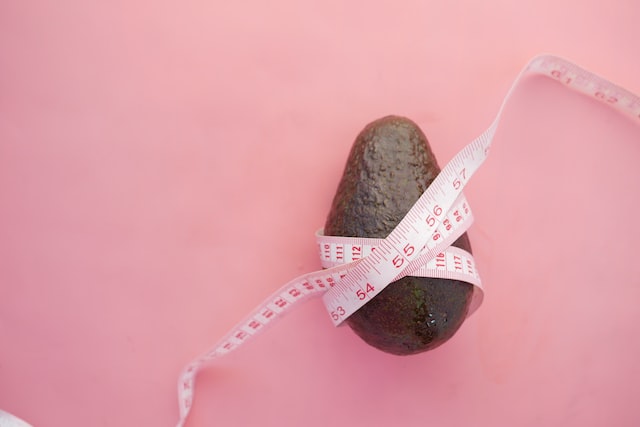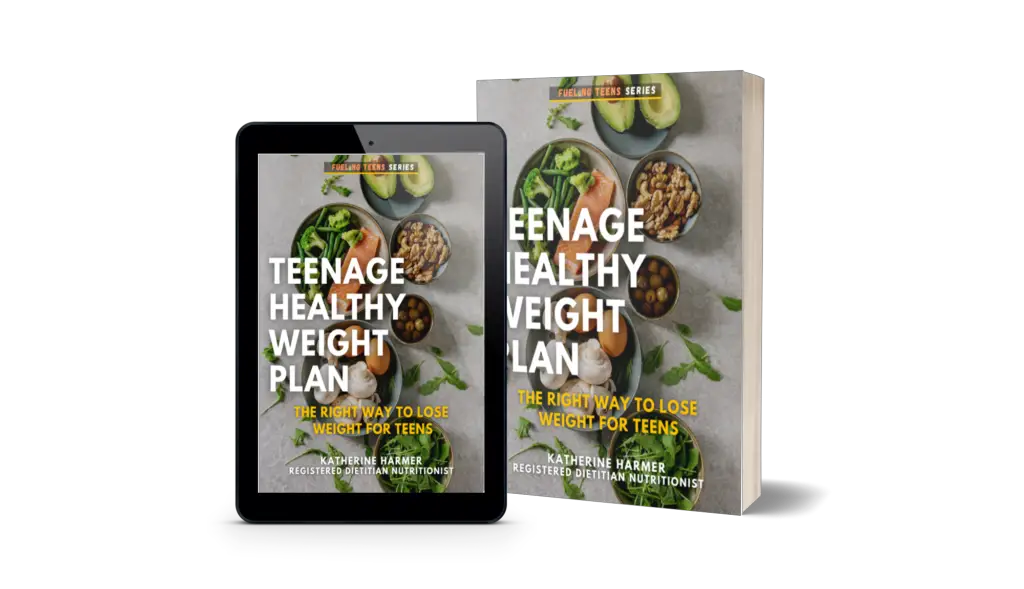Bodies come in all different shapes and sizes. Optimal weight varies for a number of reasons such as genetics, body composition, gender, height and lifestyle choices. Seventeen year olds will find this weight difference normal among their peers. However, a very low weight may be a sign of poor health or malnutrition and should be addressed. What is underweight for a seventeen year old?
The most common way to determine whether a teenager’s weight falls below normal is through the use of BMI growth charts. A BMI below the fifth percentile on a BMI-for-age chart is considered underweight. An ‘underweight’ classification at age 17 depends on age, gender, height, and weight. For example, at a height of 64 inches (5 feet 4 inches or 163 cm) for girls, any weight below 100 pounds will fall into the underweight category. For boys with a height of 69 inches (5 feet 9 inches or 175 cm), any weight below 120 pounds will categorize as underweight. The CDC provides a free BMI calculator at this website https://www.cdc.gov/healthyweight/bmi/calculator.html.
A healthy weight for one 17-year old will be different than another. Weight status depends on many factors including sex, height, genetics and body composition. For this reason, heath experts use weight along with many other tools to assess the health of growing teenagers. Parents or teenagers with concerns about weight should talk to a healthcare professional.
Continue reading for more information about underweight causes, treatment and consequences.

What Contributes to Underweight in a Seventeen-Year Old?
A low body weight generally results from not meeting energy (calorie) requirements. The energy balance equation helps with understanding the cause of this energy deficit.
| Energy Balance | = | Energy in | – | energy out |
| Total calories | = | calorie intake | – subtract | -resting metabolic rate -physical activity -thermic effect of food -non-exercise activity |
Energy balance = energy in – energy out. “Energy in” refers to calorie intake. Energy out” factors include resting metabolic rate, physical activity, thermic effect of food (energy used to digest food) and non-exercise activity thermogenesis (body movement unrelated to exercise, such as fidgeting).
Insufficient calorie consumption mainly comes from dietary choices. Teenagers who follow “diets”, adhere to strict food rules, experience disordered eating or have picky eating tendencies may find themselves with low energy input. Medical conditions resulting in malabsorption or dietary restrictions can also decrease energy input.
High levels of exercise, an unhealthy relationship with movement, or conditions that substantially increase energy use (cystic fibrosis) will contribute high energy output.
If energy input does not meet the energy output, the body lacks adequate energy to meet all of its needs, including growth. A teenager experiencing inadequate energy availability will struggle to maintain a healthy weight.
Consequences of Being Underweight
An underweight BMI often signals malnutrition. When the body does not receive enough nourishment, it goes into survival mode. This mode directs energy towards more vital functions and away from others, causing many negative effects with the rest of the body. When malnutrition continues without treatment, the chronic impairment of body organs and systems can lead to lasting damage and even death.
The following are some of the many negative consequences that arise with malnutrition.
- Vitamin and mineral deficiencies
- Amenorrhea (lack of menstruation)
- Low bone mineral density
- Brittle skin, hair and nails
- Stunted growth and development
- Muscle wasting
- Irritability
- Cold intolerance
- Cloudy mind
- Impaired immune system
- Digestive issues
- Decreased organ health
- Weight loss
- Fatigue
An individual experiencing some of these symptoms should seek advice from a health care professional. Underweight is just one of the symptoms, but individuals of any weight can experience malnutrition.
Tips for Weight Gain as a Teenager
A holistic approach, where teenagers work on mental, emotional and physical health will better support weight gain than a focus on one area alone. Significant weight loss or low weight often signals underlying issues such as anxiety, depression, trauma, food insecurity, illness or mental disorders. In these cases, teenagers should seek professional help and reach out for support from those around them.
While working through these barriers, weight gain comes from shifting the energy balance towards a positive energy availability. This adjustment comes though elevated calorie intake and lower levels of energy burning movement.
Nutrition
Dietary choices contribute notably to weight goals. However, weight gain may require changes other than just eating more. Incorporating balance, variety and moderation are essential to building a weight supportive eating pattern. A teenager practicing rigid food rules and restrictive eating practices needs to nurture a more inclusive relationship with food.
Increasing consumption of a majority fruit and vegetable or low nutrient diet will not bring desired results. Furthermore, upping calories from barely surviving levels to still significantly low calories will not create lasting outcomes either. On top of these possibilities, not changing a disordered mindset about food or addressing underlying barriers will continue a cycle of some success followed by relapse.
The varying reasons for underweight and the unique needs of teenagers makes it important to seek guidance of healthcare professionals.
With this understanding, let’s talk a little bit about how to gain weight through nutrition.
- Food before supplements– Try to focus on increasing calories through food before relying on oral supplements such as Boost and Ensure. While supplements supply ease and convenience, they lack many of the beneficial components of food that may be missing from a teenager’s overall diet.
- Increase frequency of eating– Teenage calorie requirements can be surprisingly high. Trying to consume all those calories in a few big meals may be overwhelming and uncomfortable. Instead, teenagers find it helpful to eat smaller 3-4 meals with 1-3 snacks throughout the day.
- Make meals balanced– A balanced meal will contain multiple food groups and all the macronutrients (carbohydrates, protein and fat). Continued restriction of any of these nutrients will not resolve malnutrition, despite weight gain.
- Carbohydrates provide energy and feed the brain. Carbohydrate rich foods include grains, fruit, starchy vegetables, legumes (soy, beans, lentils), milk and yogurt
- Protein supplies the building blocks for the body and support essential body systems. Protein rich foods include meat, seafood, eggs, nuts, seeds, legumes and dairy products
- Fat contributes to energy and keeps the heart and other organs strong. Including more unsaturated fats than saturated fats has been associated with improved health outcomes. Foods high in heart healthy fats include plant oils, seafood, olives, avocados, nuts, seeds and possibly whole fat dairy products.
- Emphasize inclusion over exclusion-Sometimes individuals get caught up in bad versus good foods. Yet, while food may differ in nutrient content, flavor and texture, they aren’t inherently bad or good. Especially for those teenagers looking to gain weight, all foods should be allowed. In fact, looking to include new and different foods can improve weight gain and health outcomes. Eating a variety of foods, including treats, snacks or other often labeled “bad” foods, prevents feelings of deprivation and increases nutrient content of diet.
- Add in more nutrient dense foods
Yes, a diet full of ice cream and candy bars will cause weight gain if a teenager eats enough calories . Yet, while tasty, these foods and other low nutrient dense foods do not provide necessary vitamins, minerals or quality macronutrients. This poor nutrition decreases wellness and lowers quality of life.
Nutrient dense foods include whole grains, fruit, vegetables, meat, seafood, legumes, nuts, seeds, eggs and plant oils. All foods can find a place in a balanced meal pattern, but these nutrient dense foods make important additions and should be enjoyed in along with those of less nutrient quality.
- Don’t forget about liquids– Water is essential to life and rinking fluids provides the majority of this essential nutrient. Certain liquids can provide both water and nutrition, making these drinks an advantageous choice for kids hoping to gain a few pounds. Good nutrition augmenting beverages include milk, smoothies, 100% fruit juice and plant milks.
- Power packing– This technique means finding ways to boost calorie content of food without adding a lot of volume. Some simple examples include:
- Cooking noodles or rice in oil
- Adding cream or whole milk to soups
- Melting cheese on sandwiches, pasta, etc.
- Using sauces and dressings
- Mixing nut butter into smoothies
- Combining appetizers with hummus or avocado
- Choose higher fat versions of food
Intermountain healthcare created a great resource with ideas for power packing. While directed at parents with younger children, the ideas work for teenagers and adults as well. https://intermountainhealthcare.org/ckr-ext/Dcmnt?ncid=520681019
Physical Activity
Intensity and type of physical activity affects efforts to gain weight. However, the adjustment needed will depend on the individual and their unique needs and desires.
Those experiencing significant malnutrition with abnormal vital signs should probably stop performing any additional physical activity outside of daily living. These individuals should also be receiving care from healthcare professionals.
Teenagers with less severe malnourishment or simply with a desire to gain weight, can often continue with some exercise. However, they usually need to change intensity or length of workouts depending on their current relationship with movement. Resistance and flexibility activities will encourage weight gain more than cardio. Particularly resistance exercise will help build muscle mass. Excessive amounts of any physical activity hinder weight gain progress.
Teenagers need to fuel appropriately for additional movement outside of daily living. Generally, those with a goal of weight gain should avoid exercise while in a fasted state. A high carbohydrate, moderate protein snack 1-2 hours before boosts performance. Teenagers should also eat a balanced snack or meal following their workout to help with recovery and meeting higher calorie requirements.
Other Weight Gain Tips
Creating balance in all aspects of life will not only assist with weight gain, but also improve well-being and quality of life. These areas include:
- Getting 8-10 hours consistent sleep
- Managing stress
- Addressing mental health conditions
- Developing self-confidence and compassion
If you are interested in healthy weight as a teenager, it’s important to learn what advice is real and legitimate, and what just comes from fad diets and harmful sources. I’ve written an e-Book guide and month-long meal plan to help teens establish habits that will help them get to a healthy weight and maintain it. It will help teens develop attitudes and behaviors that will lead to a positive relationship with food and nutrition throughout their lives.
The book is available in the Downloads section of my website here – Teenage Healthy Weight Plan EBook -Written by a Registered Dietitian Nutritionist Katherine Harmer
So What’s in the Book?
- 75+ pages with insightful infographics for quick tips
- 11 week plan with actionable steps for teens to develop healthy habits
- 5 week meal plan to help you eat well and eat right
- Sections directed at both teens, as well as their parents
- Healthy snack list recommendations
- Tips for gaining or losing weight the healthy way
- Calculations for daily calorie needs
- …And More
Written for teenagers who are wanting to get to a healthy weight, whether they are overweight, obese, underweight, or just wanting to develop healthier lifelong habits.
Related Posts
- What is a Normal Weight for a 17-Year Old?
- How Many Calories Does a 17 Year Old Need?
- Does Being Underweight Affect Puberty?
- When Do Teenagers Gain the Most Weight?
- How Much Protein Should Teenagers be Getting?
- The Best Protein Snacks for Teenagers
Fueling Teens is a participant in the Amazon Services LLC Associates Program, an affiliate advertising program designed to provide a means for sites to earn advertising fees by advertising and linking to Amazon.com. We also participate in other affiliate programs which compensate us for referring traffic.

